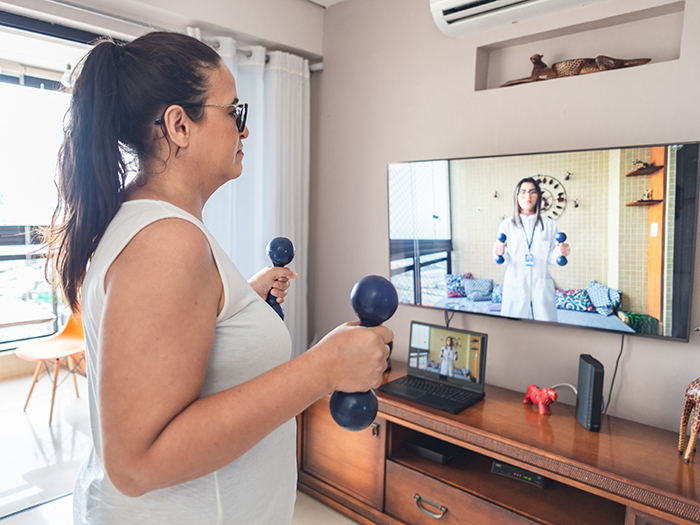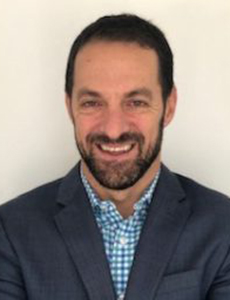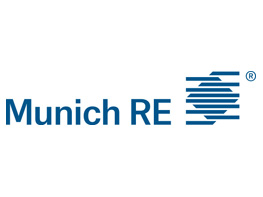Skeptical of the Efficacy of Remote Rehab? Why Exploring The Possibilities Are Beneficial for Both Physician and Patient

Daniel Seidler owns and operates TelePT Solutions. In 2019, as the director of business development with a large physical therapy group, he developed their telehealth program.
“Prior to the pandemic I went out on my own and assisted smaller practices with building their telehealth groups and then I decided it was time to go out and do the same thing on my own,” said Seidler.
“Most people don’t challenge themselves physically in their daily life,” he said. “When someone has an injury it requires mental, emotional, and physical strength to recover and return to normal life and work. I appreciate the opportunity to be a guide on that journey.”
He also appreciates insurance and risk management. “I’m really interested in partnering with payers to improve the lives of their members and reducing the costs of their care. PTs have the tools, particularly by incorporating remote care, to create efficiencies in an outdated system. So I like meeting with payers who are open to new ideas and are seeking to improve on the old way of doing things.”
Given how much the workplace has changed in the past 18 months, Seidler added, “I believe it’s going to continue to evolve. Risk managers who recognize where the workplace is going will have an edge as it evolves.”
Being a part of that evolution is what motivated Seidler to present the session “What We Know Now About Telerehab, and How to Carry It Forward the Right Way“ today at National Comp 2021, and it informs what he hopes attendees will take away. He has goals for them after the event is over.
“As work environments continue to evolve, so must insurers and risk managers,” said Seidler. “My session will shine light on how remote care can be an effective means of managing workplace injuries early and effectively to minimize lost work time and reduce costs to employers.”
In addition to what he hopes attendees will learn from the conference, Seidler has come to a few revelations about his own field in preparing for the session.
“I’ve learned that insurers and providers don’t always speak the same language, so it’s important from our side to be aware of what matters to our audience. We all have the same goals and objectives. We want to achieve optimal outcomes, reduce lost work time, and minimize the costs of accomplishing those goals. Communicating how we can best get there is often a challenge. I’m always working on that.”
Robert Kroll will join Seidler for the National Comp presentation.
Kroll is vice president of business development for Homelink Physical Medicine, was a practicing therapist for almost 30 years, more than 20 of which were running his own business specializing in treatment and prevention of work-related injuries.
He also consulted with WC payers on rehab and prevention of work-related injuries. When he left active practice, he shifted to case management and ergonomic consulting.
“In a field where outpatient therapy is often focused on sports or the Medicare population,” said Kroll. It is a challenge to get therapists to understand the nuances of workers compensation and the need to focus goals on return to work.”
There has been a bit of a reputation of mistrust in workers’ comp for many years, Kroll stated. “Providers feel payers want to unjustly deny treatment, payers often see providers as over treating and extending care unnecessarily and there’s a perception that both parties feel many injured workers are just milking the system.
“I realized a long time ago, however, that the vast majority of the stakeholders in the work comp industry really just want what’s best for the patient.”
Prior to Covid-19, most stakeholders in the workers’ comp sector gave little or no thought to the idea of telehealth or telerehab, Kroll noted. “That all changed with the pandemic.
“Our goal is for attendees to be able to walk away from our session with a better understanding of the history of telehealth pre-pandemic, have a very practical understanding of how telerehab actually works today, and finally to begin to think about the potential role of telerehab in a post-pandemic world,” he said.
As a manual therapist working in a traditional rehab environment my entire treating career, Kroll confessed that he had always been skeptical of the effectiveness of remote rehabilitation options.
“Working with therapists like fellow panelist Dan Seidler,” said Kroll, “my eyes have been opened not only to the effectiveness of treating virtually, but to the exciting potential that telerehab can play in the future.” &
 National Comp — the National Workers’ Compensation and Disability Conference — is back! We’re planning an in-person show for October, 20-22, 2021 and we’re excited to see everyone while still adhering to all safety protocols set forth by local and national health authorities at the time of the event. Register today!
National Comp — the National Workers’ Compensation and Disability Conference — is back! We’re planning an in-person show for October, 20-22, 2021 and we’re excited to see everyone while still adhering to all safety protocols set forth by local and national health authorities at the time of the event. Register today!
This year, we’ll feature seven tracks — from core content on medical and pharmaceutical management, claims and return-to-work, plus new and expanded avenues to explore like risk finance and injury prevention. All of our educational sessions are chosen for their ability to deliver sound takeaways and ideas that attendees can use right now.
In the meantime, National Comp will continue bringing you free virtual, educational content through our digital sessions series and our CompTalks program. Register today to make sure you don’t miss a digital session and check out our on-demand CompTalks library. Missed a session? Watch it here on-demand.










